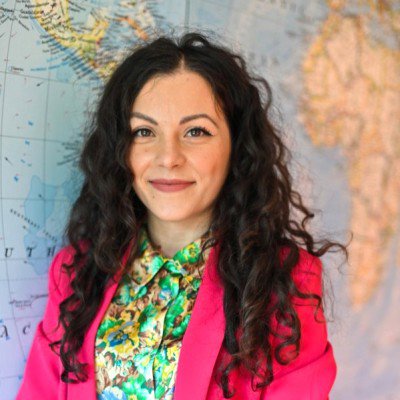At Hyve, we recognise the importance of creating an environment where employees feel valued, respected, and supported, regardless of their cultural background or beliefs.
In Ramadan month, we have asked some of our Muslim colleagues to share their thoughts and experiences related to this celebration.
Let’s meet Kasam Asif, Global Payroll & Benefits Manager.
We recently spoke to Hammad who told us about the importance of fasting and praying, but let’s discover other important values in Muslim religion.
The annual observance of Ramadan is regarded as one of the Five Pillars of Islam. Kas can you tell us more about the Five Pillars, and how they form the foundation of the Muslim faith?
- Shahada - Declaration of Faith
It is the first and most important pillar of the Muslim region. The belief that "There is no god but God, and Muhammad is the Messenger of God" is vital to Muslism. This statement expresses a Muslim's complete acceptance of and total commitment to Islam, and it’s often featured in architecture and a range of objects, including the Qur'an, Islam's holy book of divine revelations. One becomes a Muslim by reciting this phrase with.
- Salah – Prayer
It is the ritual prayer of Islam through which all Muslims conform to the will of Allah. Prayer is performed in the direction of Mecca five times a day. It is the declaration that "there is no god but Allah, and Muhammad is the messenger of Allah." This statement is the foundation of Islam and is considered to be the most important of the Five Pillars.
- Zakat - Charity
The term zakat refers to the obligatory donation of a portion of a Muslim’s surplus wealth- typically 2.5 % of your liquid assets. Islamic charities encourage donors to use their services to relieve suffering and to help refugees, victims of environmental disasters, the urban poor and those in conflict zones and in recent years relief has been provided in Gaza, Syria, Yemen and Iraq. Muslims are required to give a portion of their wealth to those in need, as a way of purifying their wealth and showing compassion to those less fortunate.
- Fasting
Muslims are expected to fast during Ramadan – the ninth month in the Islamic calendar. During daylight hours, they abstain from food and drink, breaking the fast with a meal after sunset. Those who are elderly, ill, pregnant or breast-feeding are exempt, and children are not required to participate. This fast is meant to purify the soul and show devotion to Allah.
- Hajj - The pilgrimage to Mecca
Muslims who are physically and financially able are required to make a pilgrimage to Mecca at least once in their lifetime. This pilgrimage involves a series of rituals and is meant to strengthen the individual's faith and bring them closer to Allah.
Fasting is a significant aspect of Ramadan. What else does the month entail?
The month of Ramadan is also the month of the Quran (Holy Book) this is the month the holy book was revealed to the prophet Muhammad. One should strive to recite this more often in this blessed month. It is also the month of charity and good acts.
Finally, Kas can you tell us what Ramadan means to you?
Everybody thinks it means fasting, but fasting is only a part of it!
It is the month of Peace, Tranquillity, Cure and Forgiveness. It also represents Mercy, and it symbolises the month of attaining paradise, of the Holy Quran, and a month of revelation for us.
It’s an occasion of celebrating being a Muslim, where we practice self-restraint. We don’t do what we want, but we do what God all mighty has ordained us to do!
For me, Ramadan is a special time, when I can spend the joyous month with friends and family, breaking fast as well as praying together. Ramadan humbles you and allows you to appreciate what you have. It makes you reflect on the less fortunate and needy and encourages charity throughout the month.
I look forward to Eid - most notably the food!
Ramadan Kareem from the Hyve team to you!


